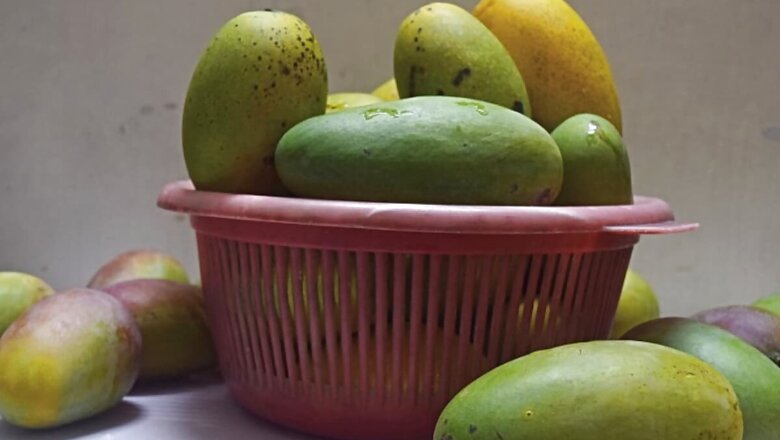
views
It’s golden, sweet and known as the “king of fruits”, and yet the delicious mango often gets a very bad reputation. Indian summers are incomplete without at least a couple of the best mangoes the season can offer, no matter which variety of the Indian fruit you love the most. And yet, if you’re even a little bit health conscious, chances are that you’ve been told to avoid mangoes as much as possible.
The general idea that people have is that mangoes are unhealthy. But in reality, this fruit is filled with vitamins, minerals and antioxidants as well as carbohydrates and natural sugar. According to a study published in Food & Function in 2017, the micronutrients, phytochemicals and bioactive compounds in mangoes can reduce the risk of metabolic and inflammation disorders. The following are some of the most popular myths about mangoes:Myth 1: Eating mangoes can make you fat.
Fact: Mangoes are indeed high in calories and fruit sugars, but that doesn’t automatically mean you’ll gain weight if you eat them. This fruit is also packed with vitamin A, vitamin C, iron, potassium, copper and bioactive compounds like mangiferin, catechins and quercetin - all of which your body needs ample amounts of. So, mangoes are actually more nourishing than fattening, as long as you don’t binge on them.Myth 2: Mangoes can make your skin break out in acne.
Fact: It’s widely believed that eating mangoes can increase body heat and cause your skin to break out. But the vitamins, minerals and antioxidants packed in mangoes are actually really good for skin health. Unless you eat way more mangoes than you should, acne breakouts shouldn’t occur.Myth 3: Diabetics should not eat mangoes.
Fact: Experts recommend for diabetes patients to have fruits with a glycaemic index (GI) below 55. Mangoes have a GI of 51, and therefore don’t affect blood sugar excessively. It’s therefore safe for diabetics to consume small portions of mangoes in the mornings. However, excessive consumption of mangoes can be extremely harmful for diabetes patients and should be avoided at all costs.Myth 4. Eating mangoes can make you feel hotter.
Fact: Eating anything generates heat in your body since your metabolic system is busy digesting food and turning it into energy. On the other hand, mangoes can, in fact, generate more heat in your body than many other foods. You can easily ensure that this does not happen by consuming smaller portions and only in the daytime. Soaking mangoes in cold water can also help increase its cooling effects.Myth 5: You shouldn’t eat mangoes while pregnant.
Fact: Mangoes are full of health benefits and of course pregnant women need the nutrients this fruit has to offer. The only reason this myth exists is that weight gain and gestational diabetes are major issues during pregnancy. Pregnant women should avoid eating mangoes only if they have either of these problems. Otherwise, small portions of mangoes during the daytime should be fine.For more information, read our article on Is it safe to eat mango in diabetes?Health articles on News18 are written by myUpchar.com, India’s first and biggest resource for verified medical information. At myUpchar, researchers and journalists work with doctors to bring you information on all things health.



















Comments
0 comment